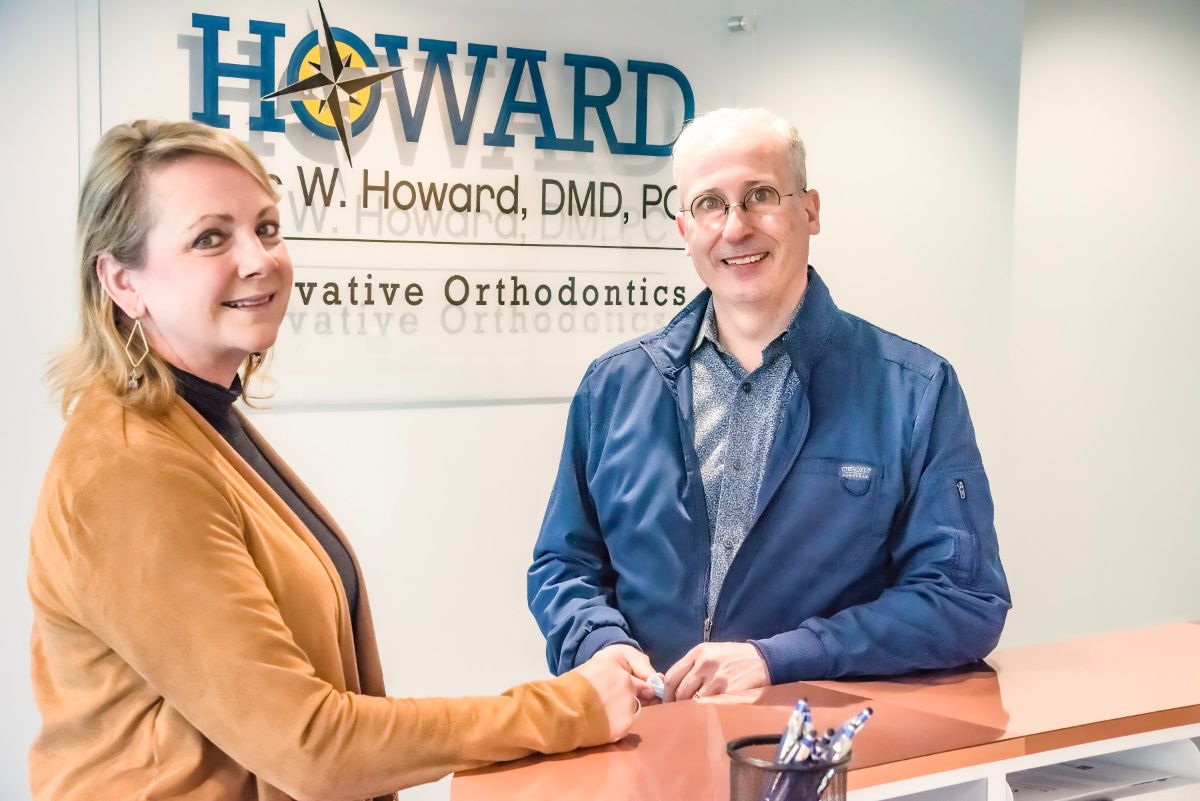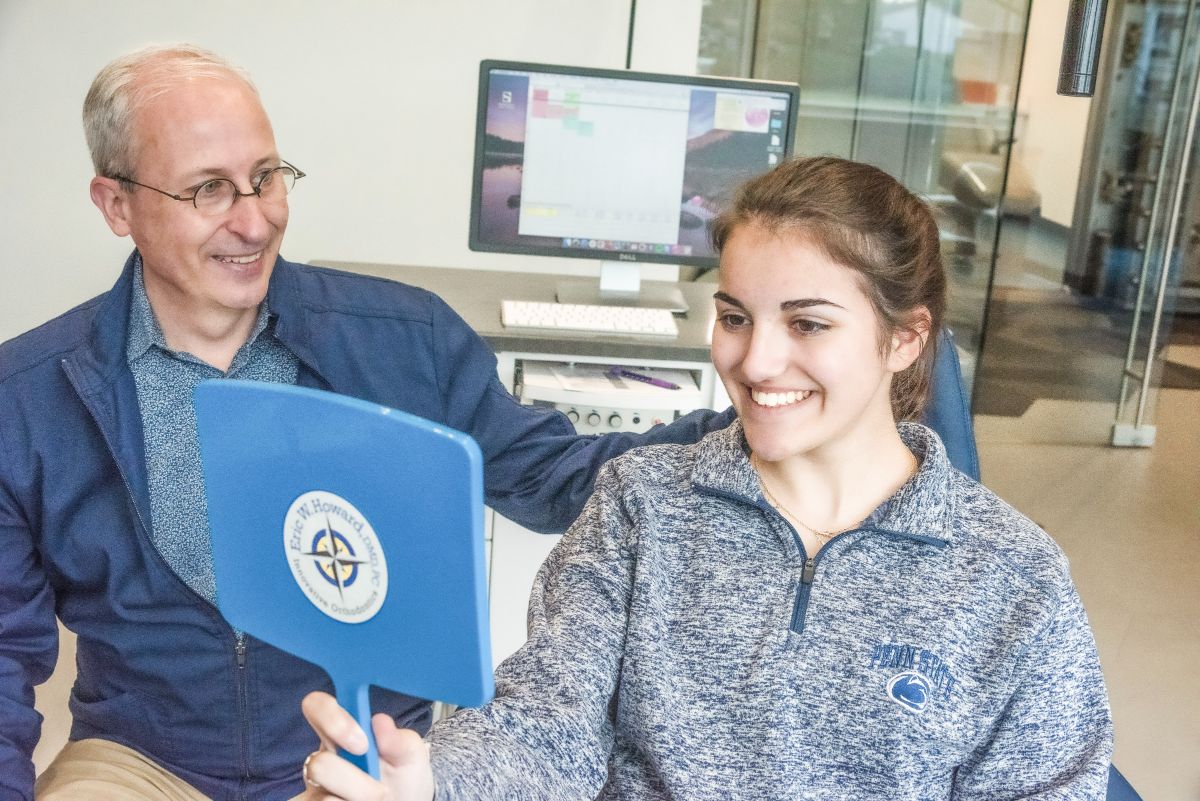For almost 20 years, Howard Orthodontics has been Lancaster’s premier orthodontic practice. Our expert team is committed to creating beautiful smiles for patients of all ages by implementing the latest in 3D imaging and precision appliance design. While you can count on us to offer the latest in orthodontic techniques and technology, there’s something simple patients can do from home to ensure a healthy smile: develop a solid oral hygiene routine and stick to it!
This is something we should all aspire to. Even if you’re not an orthodontic patient, it’s important to brush and floss regularly and avoid any bad habits that can damage your teeth! It’s a good idea to examine your dental hygiene every now and then, since recommendations change over time and you may be missing out on helpful information. With that in mind, let’s take a look at some of the most harmful habits we see in our practice and how breaking them can give you a happier, healthier smile.
Doing the bare minimum
Don’t get us wrong—a quick brush after breakfast and before bed is certainly better than nothing! But brushing and flossing regularly (and properly) is just the first step towards improved oral health. How you care for your teeth is almost as important as how often you brush and floss. We recommend using a soft-bristled toothbrush and fluoridated toothpaste, brushing at least twice a day for two minutes each time. Flossing every night before you go to bed will help remove any stubborn food particles and sticky spots of plaque, which reduces your chances of developing tooth decay. Adding an antimicrobial or fluoride mouthwash to your routine is another way to help eliminate the bacteria that cause bad breath and gum disease. Be sure to replace your toothbrush every 3-4 months, or sooner if you’ve been sick.

Grinding your teeth
Tooth grinding, or bruxism, is defined as any involuntary grinding of the teeth outside of normal chewing, swallowing, or speaking movements. This is a common, and often involuntary, habit with several possible causes. These may include:
- stress and anxiety
- medications
- certain medical conditions
- genetics
- misalignment between the teeth and jaws
- an abnormal bite
- missing or crooked teeth
Even if you’re not aware of doing it, bruxism can cause you problems. You may find that it interrupts your sleep or results in chronic headaches and jaw pain. Teeth grinding can also wear down the enamel of your teeth if it’s not treated, which will eventually expose the much softer dentin inside and increase tooth sensitivity. Fortunately, there are several ways to get a grip on tooth grinding!
Many solutions will treat any damage already present while preventing any further damage. It’s important to identify and treat any obvious underlying causes, like stress, anxiety, or orthodontic issues. Proactive treatment may be recommended as well, such as wearing a mouthguard overnight.
It often helps to simply be aware that you’re grinding your teeth. If you feel yourself beginning to clench or grind your teeth, try positioning the tip of your tongue between your teeth. This will train the jaw muscles to relax over time. Holding a warm washcloth against your cheek can often produce the same effect.
Chewing on ice and other objects
Lots of us crunch on the leftover ice in our cups or chew our nails when we’re feeling bored or anxious. These familiar habits may seem harmless, but they have the potential to do a number on the teeth! The freezing temps and tough texture of ice can cause microscopic cracks in the surface of the enamel, which can lead to several other dental issues given enough time. In some cases, it can even fracture the teeth! Similar problems can come from biting down on things like popcorn kernels and fruit pits. In general, it’s best to think before you eat so you can avoid putting any unnecessary stress on your teeth.
Chewing on your nails or other objects (like pen caps or the ends of pencils) can also chip away at your tooth enamel and irritate the soft tissue inside the teeth. If this is a tough habit for you to break, you may find some success in giving your teeth something else to do! Sugarless gum is a good choice, or try snacking on something that gives you a satisfying crunch, like carrots or apple slices. Bonus: these foods are good for your teeth and total body health, too!
Using your teeth as a tool
We’ve seen the teeth used to rip open bags of chips, tear tags off clothing, even uncap a bottle—just about anything you can think of, we’ve probably seen or at least heard about. It’s easy to do things like this without thinking about it, but using your teeth as tools can be hard on them. After all, it only takes one wrong move for a tooth to be traumatized, chipped, or even fractured.
As with the foods you eat, try to stop and think when you’re about to use your teeth for something they’re not intended for! Keep simple tools like scissors, nail clippers, and pliers in convenient places around the house so you won’t be as tempted to resort to your teeth. Remember: reducing the amount of unnecessary stress on your teeth will help keep them strong and healthy for many years to come.

Embrace your healthiest smile with Howard Orthodontics
Dr. Howard is an experienced orthodontist who has been trained in diagnosing and treating a wide range of orthodontic issues. If you’re in the Willow Street area and need some help breaking a bad habit that’s damaging your smile, he’ll be happy to take a look and see how he can help. Get in touch today to schedule a FREE consultation with Dr. Howard and take the first step towards the healthy, happy smile you deserve!
